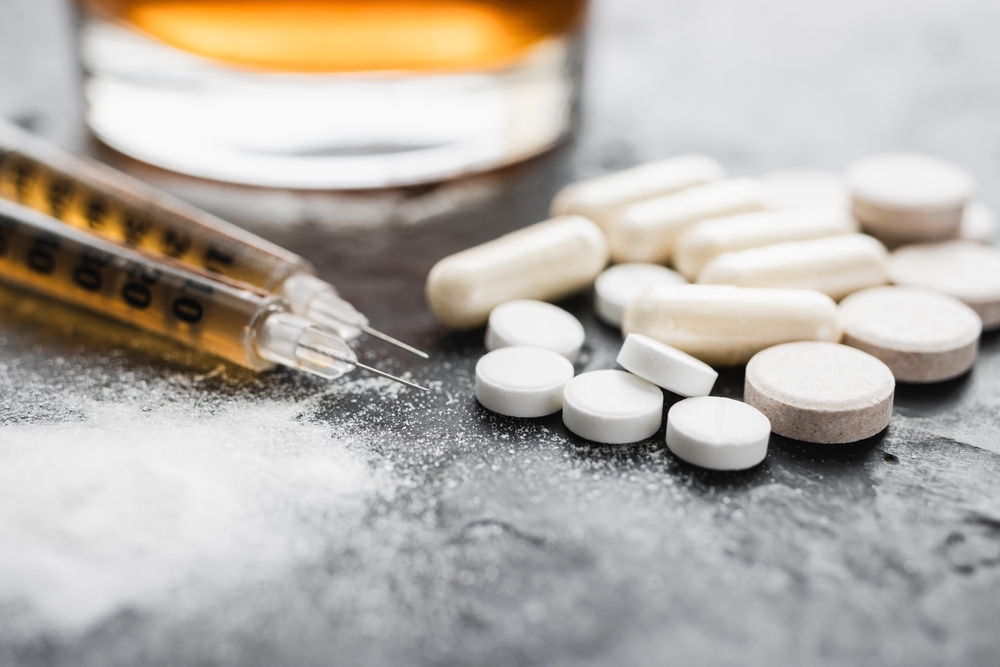
Written by:

Medically Reviewed by:
Last Updated:
February 25th, 2025
Ketamine Addiction | Signs, Symptoms & Effects
There are a lot of misconceptions about ketamine that often hide its potential risks and fuel ketamine abuse. Some people think ketamine is a completely safe drug that can help with mental health struggles, while others believe it is a horse tranquiliser and want to experience a drug that is powerful enough to sedate a huge animal. The reality is that ketamine abuse can be very dangerous and cause a huge range of issues, including ketamine addiction. If you are caught in the whirlwind of ketamine addiction, understanding the consequences and causes can help you find a way out.
What is ketamine?
Ketamine is a sedative drug that was first created to help people feel less pain during surgery. It is still sometimes used in hospitals for this purpose but has also found its way onto the streets and into clubs because of the powerful, mind-altering effects it can create.
When you take ketamine, it can make you feel disconnected from everything around you, almost like you’re floating or in a dream. It can also have hallucinogenic effects like vivid, colourful visuals and sometimes an almost out-of-body experience.
Ketamine usually comes as a powder which users snort, but it can also be injected or taken as a pill. No matter how it’s taken, the effects can be very strong and unpredictable, with some people going into what is commonly called a “K-Hole”. This is an intense and often frightening experience where you feel completely detached from reality, unable to move or communicate and sometimes trapped in a terrifying loop of distorted thoughts.
While a K-Hole can be a frightening experience, it is not a permanent one. But another potential consequence of ketamine abuse can be very long-term and very harmful: ketamine addiction.
It is these risks that have made ketamine a Class-B drug in the UK with strong legal penalties for unlawful possession or supply.
What is ketamine addiction?
Ketamine addiction is when you can’t seem to stop using ketamine even though it’s causing problems in your life. You may have first taken ketamine with your friends at a house party or club or decided to try it because you were curious about its mind-bending effects.
Either way, ketamine abuse can seem like a lot of fun at first, and this can make you do it again. With repeated use, however, the effects that one line or pill used to give you start to fade. With increased doses, you can then develop a physical dependency on ketamine, which is quite unusual among hallucinogens. This means once your body is used to certain levels of ketamine, you’ll feel like you need to take it to feel normal.
But physical dependency is only half of the picture. The other side is the psychological hold ketamine can have on you. The more you use it, the more you start relying on ketamine as a way to escape stress, anxiety or even just the boredom of everyday life. This psychological dependency can be just as powerful as the physical one, making it incredibly hard to stop taking it.
How to recognise ketamine addiction signs
Recognising the signs of ketamine addiction early can enable you to seek timely professional help and regain control of your life. Drug addiction can sneak up on you and sometimes it’s hard to see the problem clearly when you’re in the middle of it. Here are some common ketamine addiction symptoms that anyone using ketamine needs to be aware of:
- You are constantly thinking about your ketamine supply and making sure you have enough
- Every time you tell yourself you’re done with ketamine, you end up relapsing
- Your job, school and relationships are all slipping through your fingers because ketamine is your number one priority
- When you try to quit, anxiety, restlessness, and depression kick in, pulling you back into the cycle of ketamine abuse
- Ketamine has sucked the joy out of everything you used to enjoy, so you only feel happy when you are using it
- You have been lying to friends and family about how much ketamine you are using or sneaking around to use it in secret.
If you are nodding along as you read these ketamine addiction symptoms, today may be the day to reach out for help.
Why is ketamine addictive?
On a purely chemical level, what makes ketamine so addictive is the powerful effect it has on your brain. When you take ketamine, it messes with the neurotransmitters that control your mood and perception. After repeated use, your brain stops acting on these neurotransmitters itself, and so it produces cravings to ensure you keep taking ketamine.
It’s not just these effects of physical dependency that make ketamine so addictive, however. Various underlying personal causes play a big role. If you have a family history of addiction, you might be more at risk because your brain could be wired in a way that makes it easier to become hooked on ketamine.
Stress, trauma, and mental health struggles are other big factors. If life feels overwhelming or you are battling anxiety or depression, ketamine might seem like a quick fix, but this temporary crutch can soon pull you deep into ketamine addiction.
What are the dangerous side effects of ketamine addiction?
Ketamine abuse and addiction can cause lasting damage to your body and mind in ways you might not expect.
Physically, one of the most dangerous side effects is the damage ketamine can do to your bladder and kidneys. Chronic ketamine abuse can cause a condition called “ketamine bladder,” leading to severe pain, frequent urination and even permanent damage that might require surgery. Your liver can also take a major hit, with the constant strain of processing the drug leading to potential liver damage over time.
Mentally, ketamine can leave you feeling detached from reality even when you’re not using it. This ongoing disconnection can spiral into severe anxiety, depression and, in some cases, intense paranoia or hallucinations. The more you use, the more likely you are to experience these mental health issues, which can be both frightening and overwhelming.
Long-term ketamine use can also mess with your memory and cognitive abilities, making it difficult to think clearly or remember things. This can affect everything from your work to your relationships, leaving you isolated and struggling to keep up with life.
How is ketamine addiction treated?
At Linwood House, ketamine addiction treatment starts with drug detox, where we help your body flush out ketamine under the careful watch of our medical team. They will be at your side the whole time, making sure any adverse reactions are managed so you are as comfortable as possible.
Next comes drug rehab, where you will work with our therapists to understand what’s really driving your ketamine abuse. Through a mix of one-on-one therapy, group sessions and holistic treatments, you can then start to rebuild your life without ketamine.
Finally, aftercare is all about keeping you strong on your journey. With ongoing group therapy and support, you will have a solid safety net in place as you adjust to life without ketamine.
Get help for ketamine addiction today
Ketamine might have taken a lot from you, but it doesn’t have to take away from your future. Your best days are still ahead of you, and Linwood House can help you get there. We offer comprehensive treatment programmes that will help you leave ketamine addiction far, far behind. Contact us today, and let’s get started.
Frequently Asked Questions
(Click here to see works cited)
- BBC. “Ketamine bladder: Special clinics as youth addiction ‘explodes.’” BBC, 18 April 2024, https://www.bbc.com/news/uk-england-bristol-68826392. Accessed 26 August 2024.
- FRANK. “Ketamine | Effects of Ketamine.” FRANK, https://www.talktofrank.com/drug/ketamine. Accessed 26 August 2024.
- UK Rehab. “Ketamine Addiction | Causes, Symptoms and Diagnosis.” UK Rehab, https://www.uk-rehab.com/drug-addiction/ketamine/. Accessed 26 August 2024.
- Chaves, Tharcila V et al. “Overdoses and deaths related to the use of ketamine and its analogues: a systematic review.” The American journal of drug and alcohol abuse vol. 49,2 (2023): 141-150. doi:10.1080/00952990.2022.2132506
NIDA. “Ketamine.” National Institute on Drug Abuse, 9 Apr. 2024, https://nida.nih.gov/research-topics/ketamine Accessed 25 Aug. 2024.


